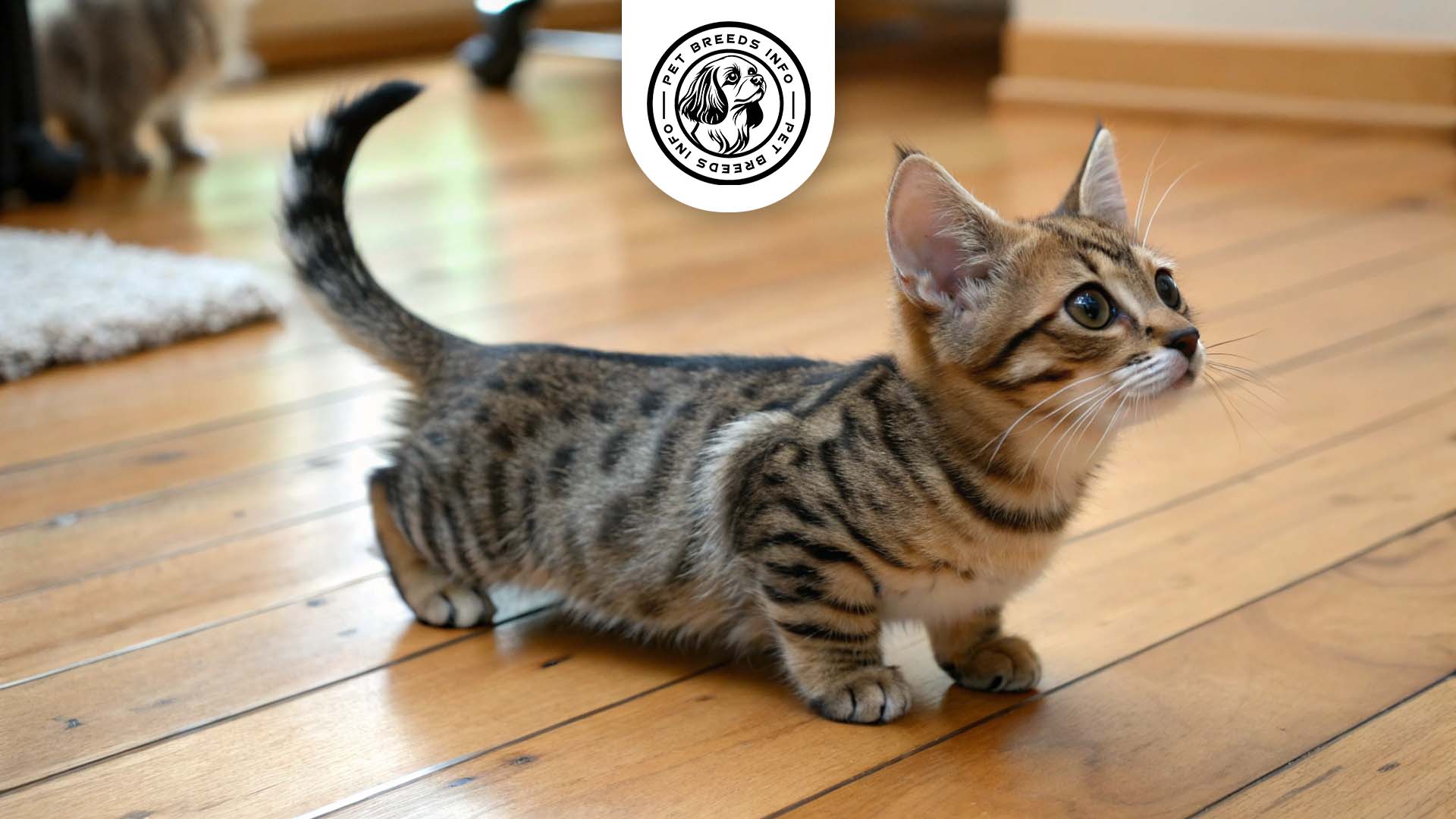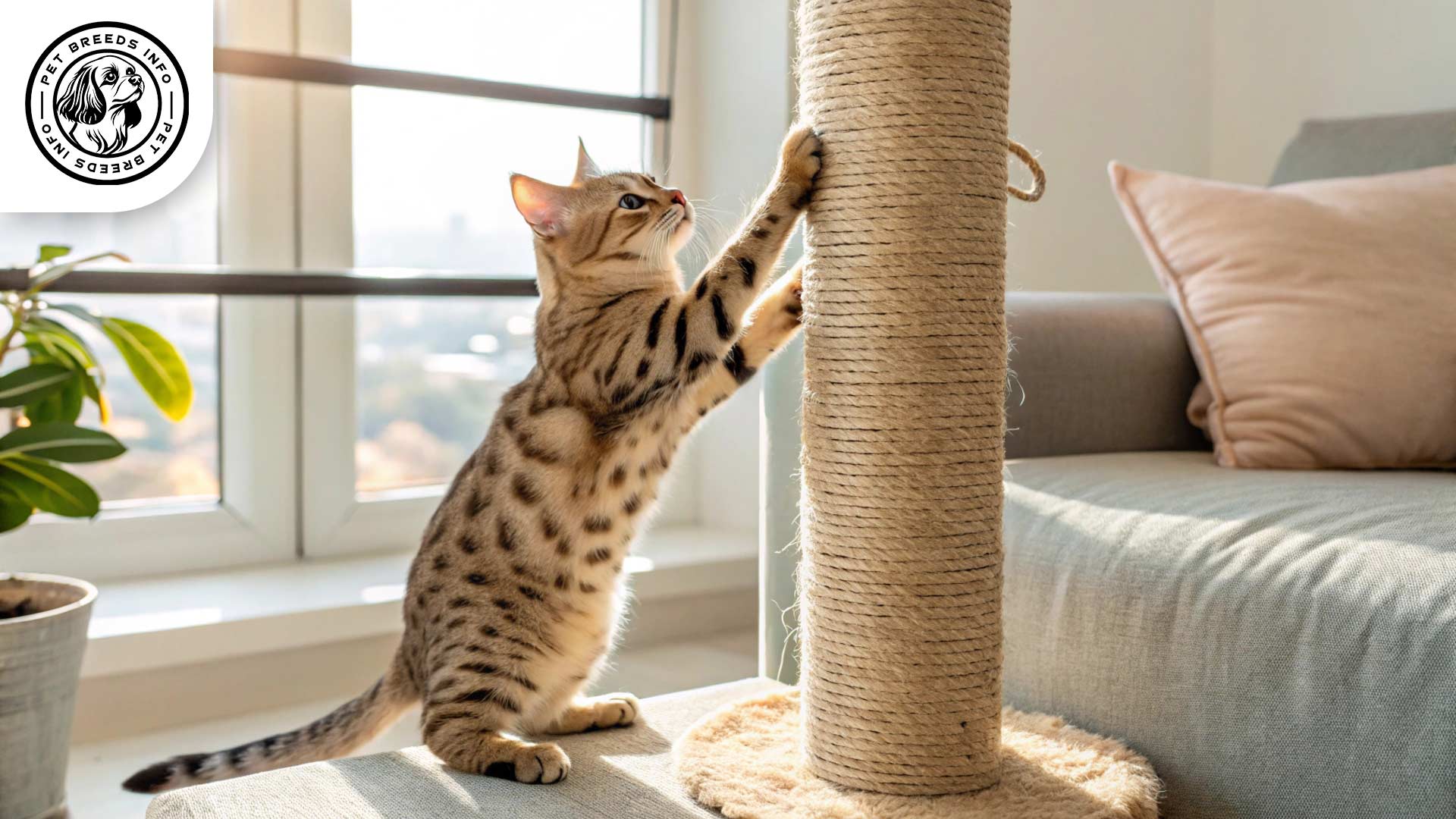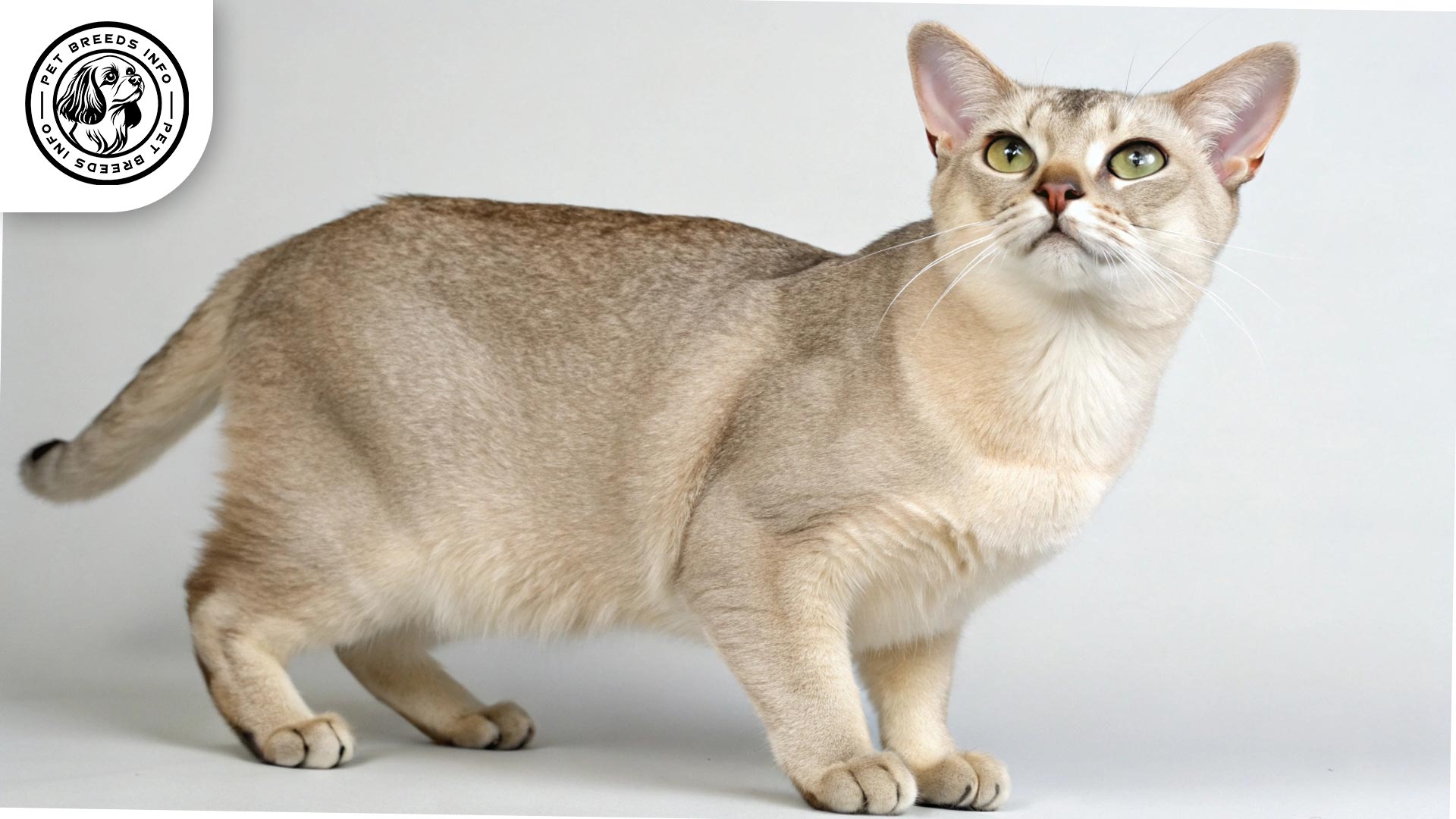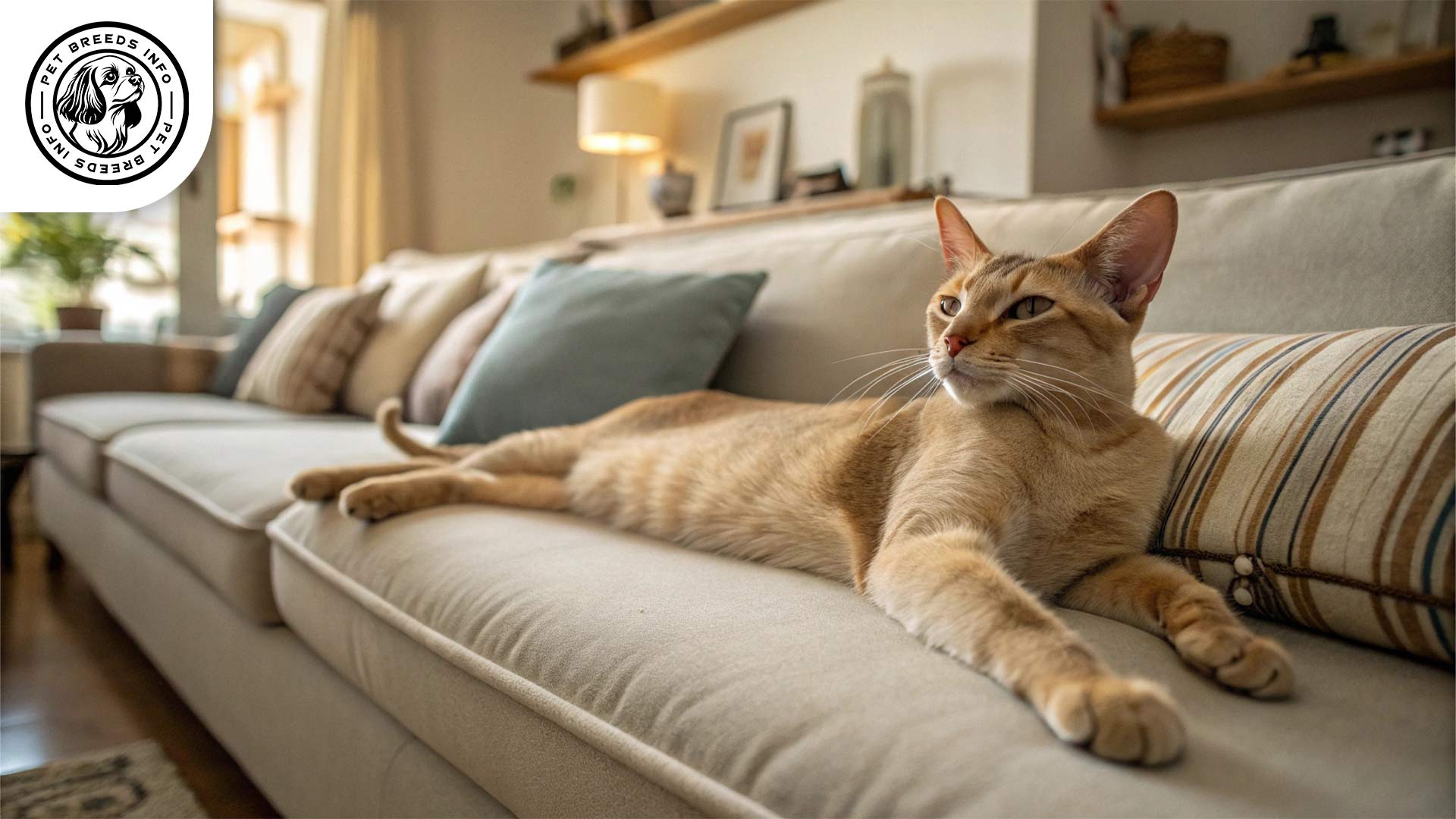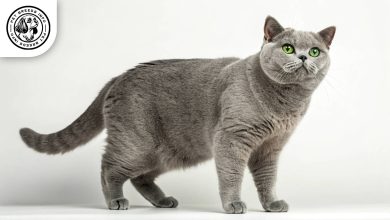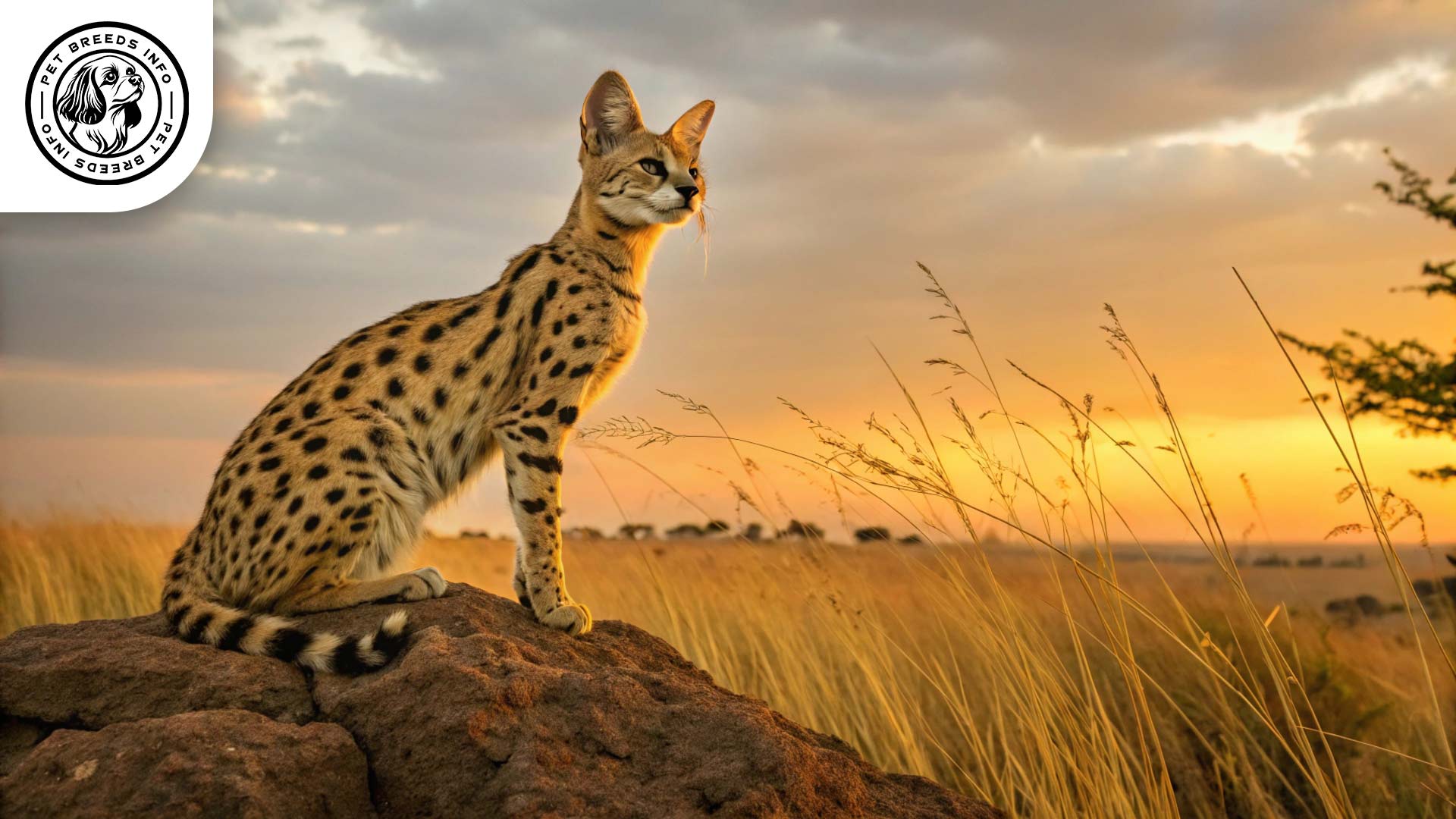Munchkin Cat Breed: Size , Health, Price & Personality
General Introduction of the Munchkin Cat Breed
The Munchkin cat, also known simply as Munchkin, originated in the United States. This breed is best known for its short legs, which result from a natural genetic mutation. While short-legged cats have been recorded throughout history, the modern Munchkin breed was officially developed in the 1980s and gained recognition from The International Cat Association (TICA) in 1995.
Munchkin cats are playful, affectionate, and social companions with a unique look, ideal for families and apartment living.Quick Overview
Affectionate - 85%
Independent - 60%
Intelligent - 80%
Sociable - 90%
Vocal - 50%
Shedding - 60%
Energetic - 75%
71%
100
| Weight | 5 – 9 lbs (2.3 – 4 kg) |
| Lifespan | 12 – 15 years |
| Diet | High-quality dry or wet food, protein-rich, low in fillers |
| Care | Weekly brushing for short-haired, 2-3 times per week for long-haired; regular hygiene maintenance |
| Health | Generally healthy but may have spinal issues like lordosis and pectus excavatum |
| Color | Can come in nearly any color and pattern |
| Nature | Playful, affectionate, intelligent, social, and adaptable |
| Price | $500 – $2,000 depending on breeder and lineage |
Table of Contents
Physical Characteristics
Munchkins are small to medium-sized cats. Adult males typically weigh between 6 to 9 pounds (2.7 to 4 kg), while females usually weigh 4 to 8 pounds (1.8 to 3.6 kg). Their height is shorter than average due to their signature short legs.
The breed comes in both short-haired and long-haired varieties, with a dense, soft coat. Munchkins can have coats in nearly any color and pattern.
The eye shape is large and round, with various color possibilities that complement their coat. Their ears are medium-sized and slightly rounded at the tips, while their tail is proportionate to their body, tapering slightly at the end.
Aside from their short legs, Munchkins have an overall well-proportioned body with a firm, muscular build. They are agile despite their stature and maintain an elegant, playful appearance.
Personality and Temperament
Munchkins are intelligent and quick learners, often adapting well to new environments. They are highly energetic and enjoy active playtime, despite their short stature.
These cats develop strong bonds with their owners and enjoy social interaction. They tend to seek attention and companionship and are often described as affectionate and friendly.
Munchkins get along well with humans, including children and other pets. Their gentle and playful nature makes them great family companions. They retain a playful, kitten-like personality throughout their lives and enjoy interactive toys.
They usually adjust well to different environments but can be sensitive to sudden changes or loud noises. Providing a stable and welcoming home helps them thrive.
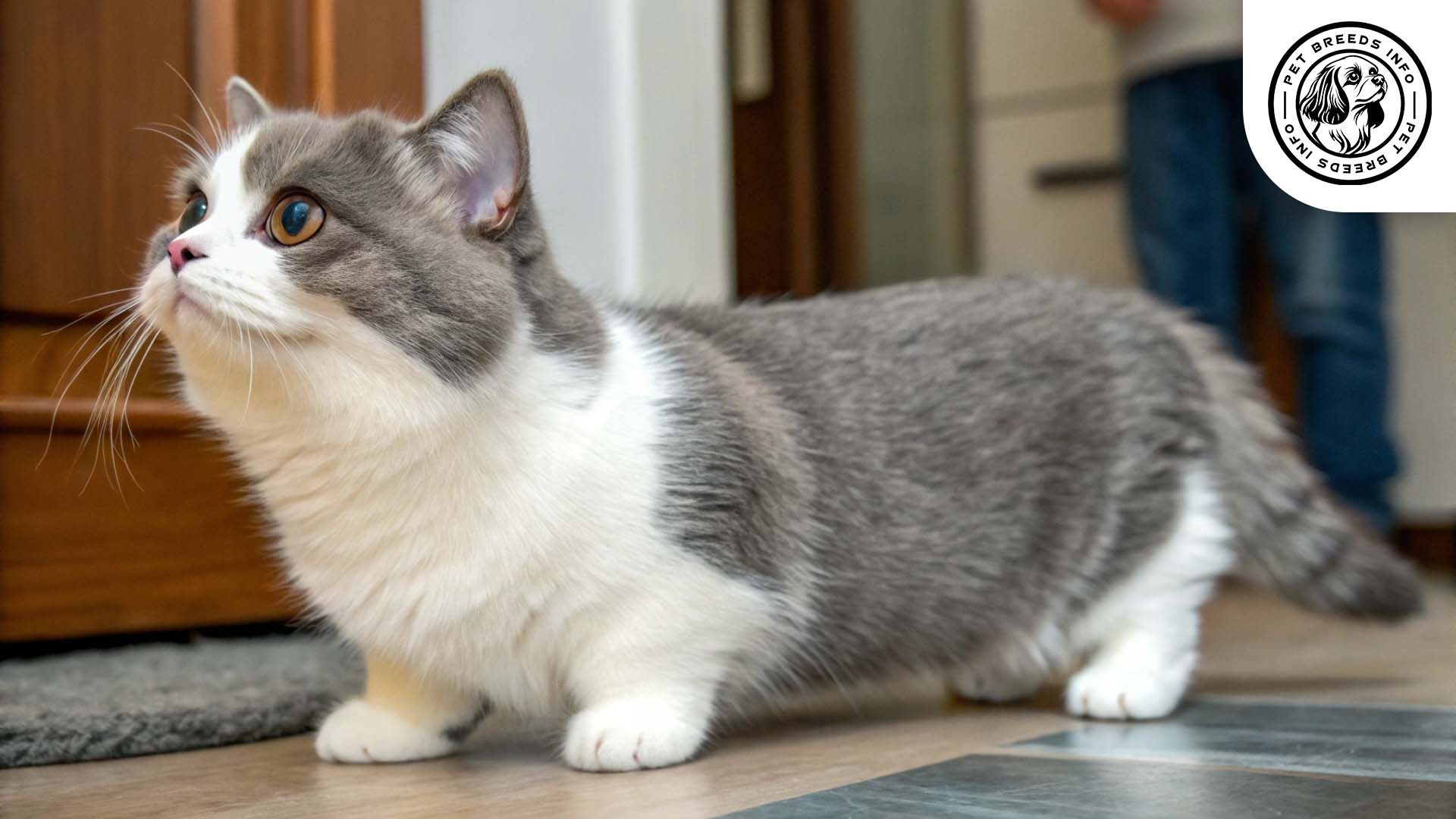
Care and Maintenance Requirements
Munchkins are playful but do not require excessive exercise. Daily interactive play sessions, along with access to climbing furniture and toys, help them stay active.
Read More: Ojos Azules Cat
They adapt well to apartment living and do not require large spaces, making them ideal for small homes.
Short-haired Munchkins require brushing once a week, while long-haired varieties need grooming 2-3 times per week to prevent tangles and matting. Shedding levels are moderate.
They are generally comfortable in most indoor climates but may be sensitive to extreme cold or heat.
Regular hygiene includes occasional baths, nail trimming, ear cleaning, and dental care to maintain oral health.
Diet and Nutrition
Munchkin cats thrive on a balanced diet that includes high-quality dry or wet cat food. Some owners opt for a raw or homemade diet under veterinary guidance.
They do not have specific dietary restrictions but should be fed protein-rich meals while avoiding excessive carbohydrates and fillers.
Toxic foods such as chocolate, onions, garlic, caffeine, grapes, and alcohol should be strictly avoided.
Portion control is important to prevent obesity, with meals typically divided into two to three portions per day.
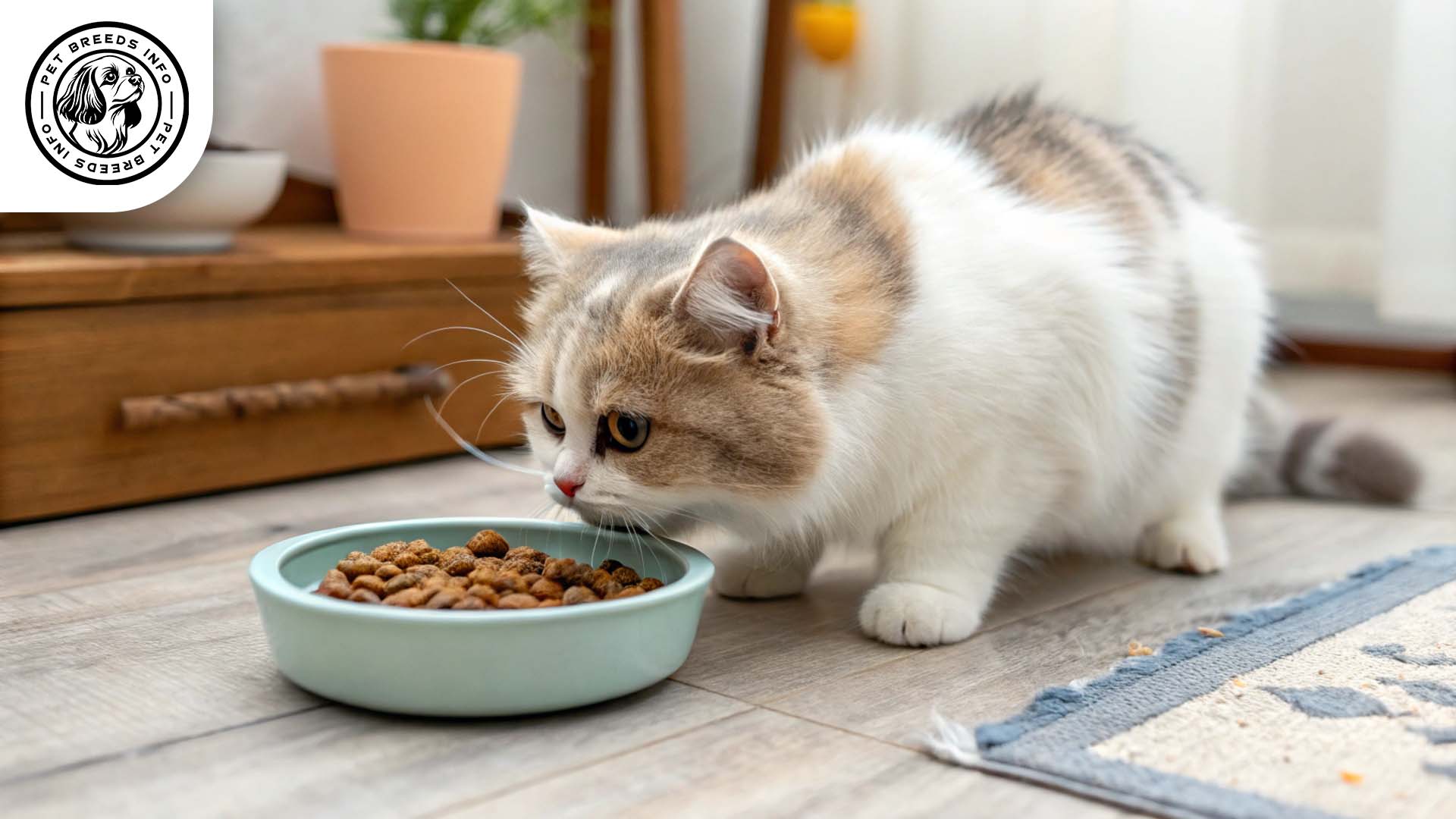
Health and Common Medical Issues
Despite their unique body structure, Munchkins are generally healthy cats. However, they may be prone to spinal issues due to their shortened limbs.
Read More: Oriental Bicolor Cat
Common concerns include lordosis (spinal curvature) and pectus excavatum (chest deformities). Regular veterinary checkups help monitor their health.
The average lifespan of a Munchkin ranges from 12 to 15 years with proper care.
Routine vaccinations, deworming, and parasite prevention are necessary to maintain their overall well-being.
Training and Behavior Management
Munchkin cats, with their sharp intelligence and playful demeanor, are relatively easy to train, making them delightful companions for dedicated owners. They respond enthusiastically to positive reinforcement techniques, such as treats or praise, and can master tricks and commands with consistent practice. Early socialization is key to helping them adapt confidently to diverse environments and household routines, ensuring a well-adjusted pet. Providing scratching posts and designated play areas satisfies their natural instincts, effectively preventing unwanted scratching on furniture while keeping them engaged and content.
Interaction with Other Animals and Humans
Munchkins are affectionate with children, making them excellent companions for families.
They are generally friendly toward other pets, including cats and dogs, as long as they are properly introduced.
They enjoy human companionship and may not do well if left alone for extended periods. They are ideal for individuals or families who can provide attention and engagement.
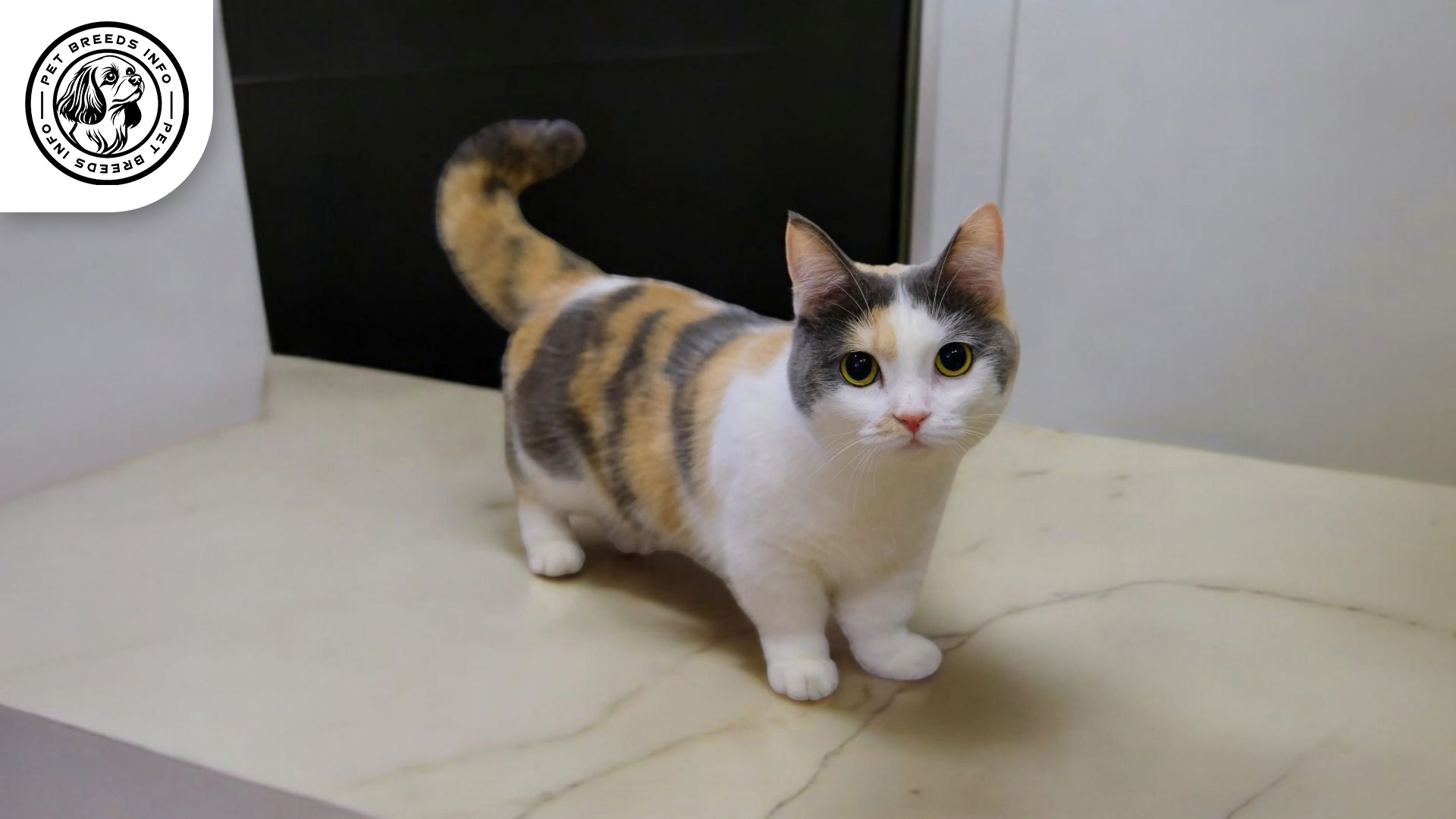
Price and Availability
The cost of a Munchkin kitten can vary widely based on factors like pedigree, breeder reputation, and coat type, with prices generally ranging from $500 to $2,000. Prospective owners should carefully choose reputable breeders who adhere to ethical breeding practices and provide comprehensive health screenings to ensure the kitten’s well-being and genetic soundness. Adopting from shelters or rescue organizations is another thoughtful option, offering a loving home to a Munchkin in need, though this breed may be less commonly available in such settings.
Read More: Nebelung Cat
Conclusion and Final Thoughts
The Munchkin cat is a playful, affectionate, and intelligent breed that adapts well to various living environments. Their small size and social nature make them great companions for families and individuals alike.
They require moderate grooming and routine veterinary care but are generally healthy cats with an average lifespan of over a decade.
Prospective owners should consider their playful energy, need for social interaction, and possible genetic health concerns before adopting a Munchkin.
Overall, Munchkins make wonderful pets for those seeking an affectionate and lively companion.
FAQ
Does the short-legged trait of Munchkin cats affect their health and mobility?
Munchkin cats are generally agile and active, but they may be prone to spinal issues like lordosis and chest deformities.
What type of home is suitable for a Munchkin cat?
They adapt well to apartments and small homes and are great companions for families, singles, and households with other pets.
How much grooming do Munchkin cats require?
Short-haired Munchkins need brushing once a week, while long-haired ones require brushing 2-3 times per week to prevent tangles.
Are Munchkin cats good with children and other pets?
Yes, they are friendly and sociable, getting along well with children and other pets
Are Munchkin cats suitable for first-time cat owners?
Yes, Munchkin cats are friendly, intelligent, and easy to care for, making them a great choice for first-time cat owners.
